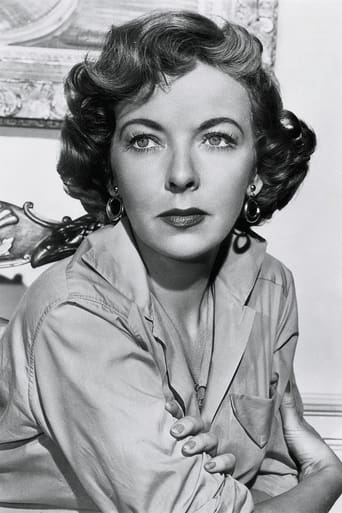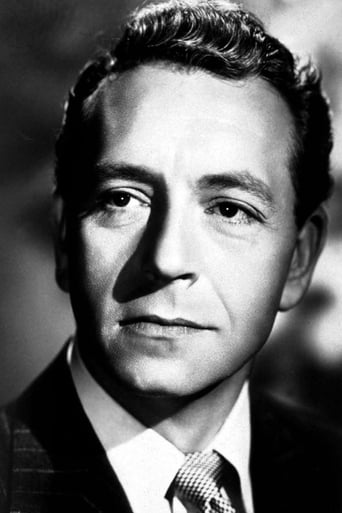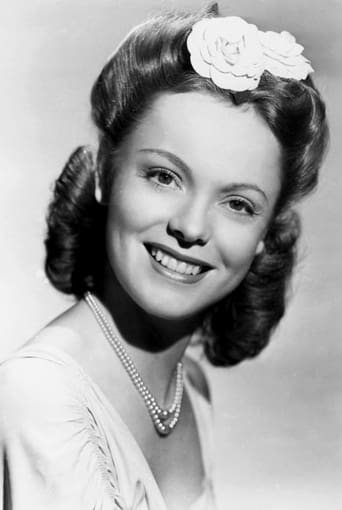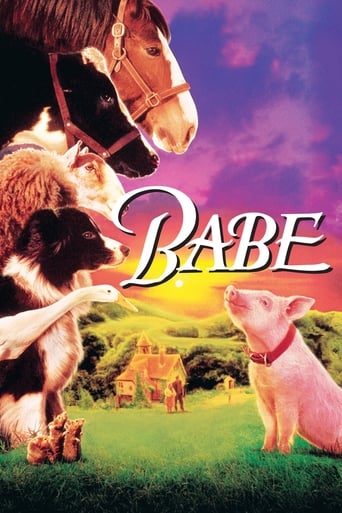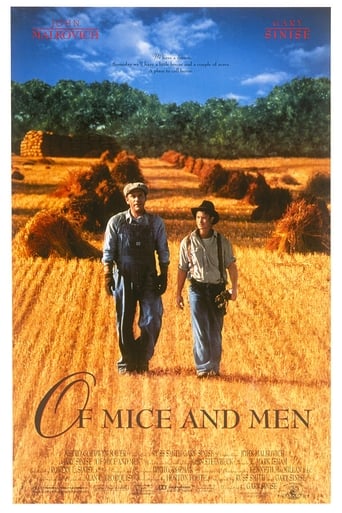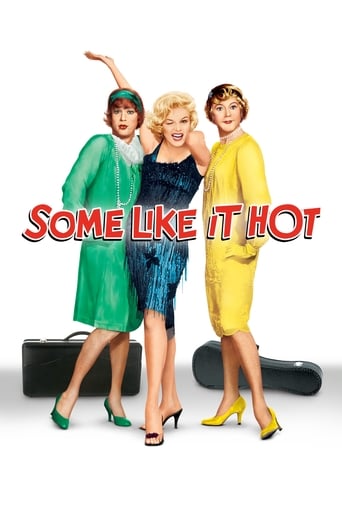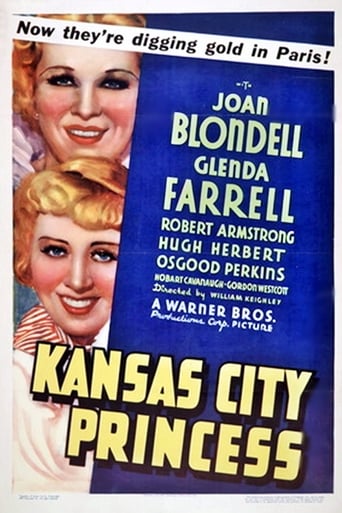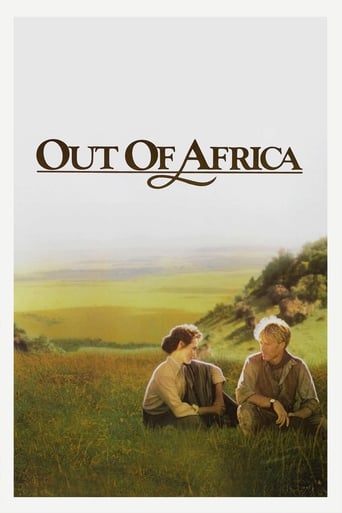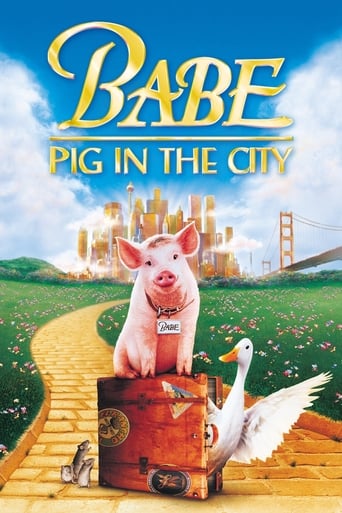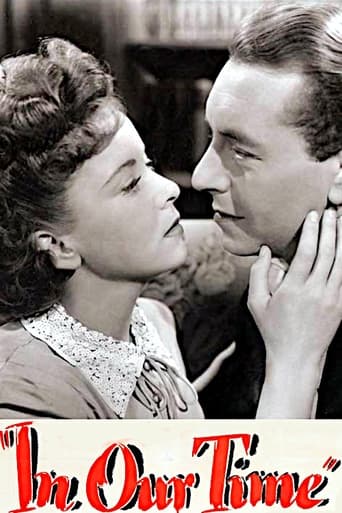
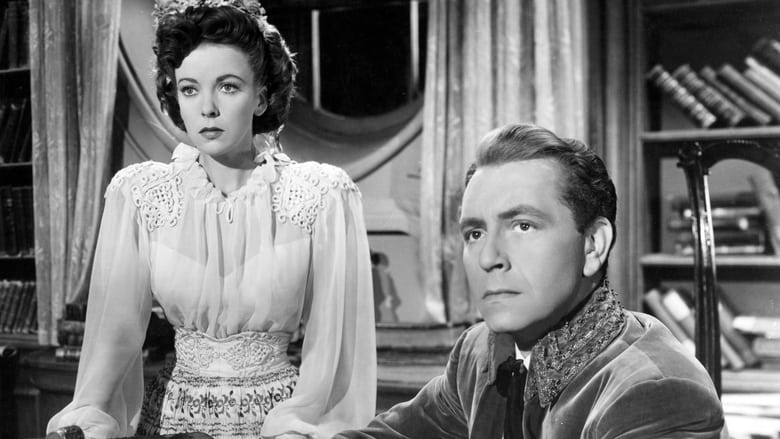
In Our Time (1944)
It is early 1939 in Poland when Mrs. Bromley and Jennifer come to buy antiques for her business in London. Jennifer meets Count Stephen and they wine, dine and see the sights though out the city. He wishes to marry, but his family is against plain Jennifer. When she tries to leave, he catches her at the train station and they are married. To be self sufficient, they modernize the family farm with tractors and increase production, but then Germany starts the war.
Watch Trailer
Cast


Similar titles
Reviews
Sadly wasted cast, all of whom are beaten by a script that doesn't know where it's going and leaves you wondering where you have been. Just when you get ready to hate a villain, they turn out to be a not-so-villain (Particularly the always excellent Victor Francen, who was used extensively by Warner's to represent the full spectrum of Europeans, both good and bad). We don't even get some real-life Nazi's to loath. The only real difference between this and GWTW is that GWTW is 3 hours long and this just seems like it. One of the odd results of this is that, if you pay close attention, you may agree that the great Ida Lupino may have been a good second choice for Scarlett O'Hara (though her performance here is much more restrained by the character.)
Vincent Sherman's "In Our Time" tries to do for Poland what "Mrs. Miniver" did for England: raise American awareness to the plight of a European nation besieged by the Nazis. Unfortunately, the film wanders all over the hack-writing map from romance to propaganda to social issues and loses its focus early on. Even the style of the film shifts from intimate drama to semi-documentary with voice-over narration to stirring morale booster complete with back-lit clouds and beams of inspirational light. Despite the varied styles, the movie seems to linger on far too long despite a running time of less than two hours. By the time that the requisite patriotic speech has been made, the music has risen to stirring proportions, and the march towards the sunset has begun, many viewers may already have tuned out.The unconvincing story begins in an antique shop where Ida Lupino, the young companion of Mary Boland, an English antiques buyer, meets Paul Henreid, a Polish nobleman. Only those who have never seen a Hollywood film from the Golden Age will be surprised by the Romeo-and-Juliet romance that develops or by the obstacles that stand between the couple and eternal bliss. Class-conscious family, impending war, and stubborn peasants are only some of the roadblocks to those inspirational beams that beckon on the horizon.Unfortunately, some first-class talent has been lavished on this less-than-classic film. Ida Lupino is the shy companion to an overbearing employer. Within two hours, she blossoms into an assertive woman who fully supports and inspires her husband in his idealistic pursuits. Paul Henreid, whose seductive eyes and voice won Bette Davis and Ingrid Bergman, works his magic on Lupino. Like his role in "Casablanca," Henreid's character is caught up in patriotic fervor and self-sacrifice. Both leads are excellent although they cannot overcome the messy script. Silent film star Alla Nazimova offers especially fine support as Henreid's aristocratic mother. However, while the cast often rises above the writing, "In Our Time" remains dated in its message. Considering what Poland endured under Communism after World War II, many of the film's inspirational lines about fighting for the future ring with irony. Despite the length, lapses, and inconsistencies, Lupino, Henreid, and Nazimova make "In Our Time" worth a viewing, but the film is hardly a repeatable experience.
IDA LUPINO is a British young woman visiting Poland and acting as a companion to MARY BOLAND, a wealthy woman fond of collecting antiques. At an antique shop, Ida runs into PAUL HENRIED, who thinks she works at the store. They meet and fall in love, and Ida discovers that he's a Polish count. He insists on showing her around Warsaw and in a few short days they fall in love and, although Ida has misgivings when she meets his family and fails to pass inspection, they do marry.Then the Nazi invasion of Poland looms over the story for the second half of the film. The script is articulate and literate, dealing as it does with the aristocracy for the most part, but terribly slow-moving and Vincent Sherman's direction fails to give the script the pace it needs to maintain interest.Ida plays a more rational and less intense creature than she usually does and gives an assured performance as the British girl who must adjust to her new husband and his family. NANCY COLEMAN is his regal, spoiled sister, NAZIMOVA is his party-loving mother, and VICTOR FRANCEN is Henried's wealthy uncle, a Count who keeps the family financially solvent.But Poland is unable to avoid falling into Hitler's clutches and the story veers into more serious territory with the advent of war and the decision that Henried must make with regard to Poland under Nazi rule.Summing up: A bit tedious at times, but interesting for the performances of Lupino, Henried, Coleman, Francen, Nazimova, Mary Boland and Franz Waxman's melodramatic score.
As an actress, Ida Lupino achieved success in the 40's acting alongside Humphrey Bogart and Edward G. Robinson. For me, she was a totally average actress. As a director, she had more substance to offer in the 50's and 60's, but I guess she was just paying the bills with this film.


